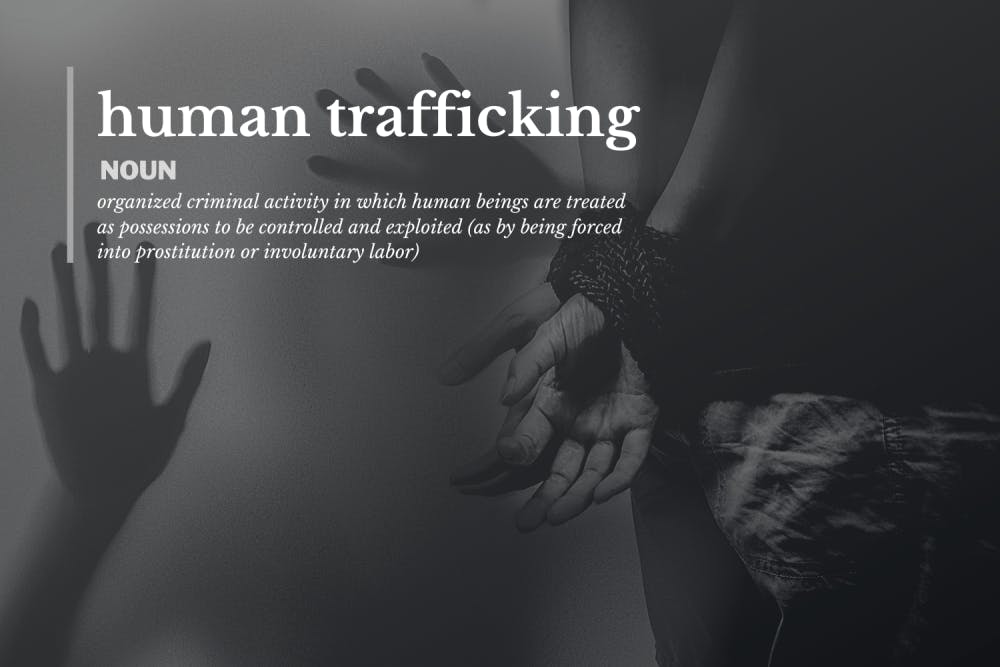Human Trafficking | Graphic by Dylan Collison | The Wright State Guardian
Human trafficking is when somebody forces another individual to perform sexual or laborious tasks. In the U.S., January is recognized as Human Trafficking Awareness Month.
Human Trafficking
The way human trafficking is often modeled on television is not necessarily how it occurs in every day life.
“Often times, people hear stories about trafficking that involves zip ties on car mirrors or windows, being followed in the mall, white vans in parking lots or something like the movie ‘Taken’,” said Legal Director of the Human Trafficking Initiative Jennifer Rausch. “While this doesn’t mean you shouldn’t be aware of your surroundings and the possibility of other criminal activity, this is not typically how trafficking happens.”
Human traffickers often build a relationship with their victims and figure out their weak points so they can claim to fulfill a need of the victims. An employer or significant other may take advantage of an employee or lover going through a difficult time in their life.
“Some of the most common industries where trafficking is seen are agriculture, domestic work, construction, hospitality, traveling sales, restaurants/food service, health/beauty and illicit massage parlors,” said Rausch.

While the true number of the amount of human trafficking victims is unknown, it is believed to be in the millions each year.
“By some estimates, as many as 24.9 million people—adults and children—are trapped in a form of modern slavery around the world, including in the United States,” said the Executive Office of the United States President in a proclamation.
Signs and how to help
Many victims of human trafficking have little to no control over their day to day life.
“Both sex and labor trafficking victims often do not have control of their identification documents or money and can appear to have signs of physical, mental or emotional abuse,” said Rausch. “They may also seem submissive, fearful or nervous.”
Some ways to help put an end to human trafficking can be done from your own home, such as posting on social media with #endslavery.
“Learn about how your consumer habits may be connected to modern slavery. Whether it's the clothes we wear or the phones we use, products we use daily might be produced with forced or trafficked labor,” said a representative of the United Way.
Never hesitate to take action if you believe someone you know or see is a victim of human trafficking.
“If you see something, say something! If you think someone is in immediate danger, call 911. To report other suspicious activity, call the non-emergency number of your local police or the 24-hour National Human Trafficking Hotline (888-3737-888), which sends Ohio-related information directly to the appropriate local response/network,” said Rausch.
In addition to the National hotline, those in danger or in possession of trafficking information may text: BeFree (233733).












